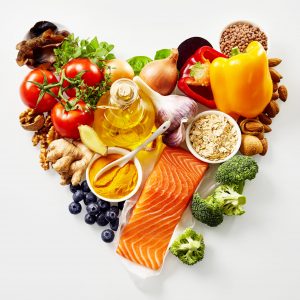What foods are good and bad for a cold?

In order for the body’s immune system to function optimally in its task of fighting cold and flu viruses, it must receive vital nutrients.
Among the main natural sources of vitamin C that are effective in treating colds are:
Oranges, grapefruits, berries, bell peppers, strawberries, potatoes and green leafy vegetables such as cabbage. High and regular intake of vitamin C helps to reduce the incidence, severity and duration of colds.
Dates are one of the fruits that are suitable for healing people. Dates Supplier Malaysia very useful because of its warm nature and it always increases the resistance of the body and strengthens the immune system, and due to the vitamins in it, it can be helpful in the process of healing the disease.
Cereals and legumes are good food sources of one of the group B vitamins called pantothenic acid. Lack of pantothenic acid causes frequent infections of the upper respiratory tract.
– Garlic contains iron, zinc and allicin, which strengthens the immune system and helps reduce the risk of viral infections.
Fish, salmon, sardines and oily fish are rich in omega-3 fatty acids. Flax seeds, pumpkin seeds and chestnut oil are also good sources of omega-3.
Sesame seeds, pumpkin seeds and sunflower seeds are rich sources of omega-6 fatty acids. These fatty acids help the cells of the respiratory system to fight against cold infections.
– Liver, types of fish including salmon, herring and herring, butter and eggs are sources of vitamin A. Carrots, mangoes, potatoes, apricots, pumpkins, and dark green vegetables also provide beta-carotene, which is converted into vitamin A in the body. Frequent respiratory infections in children are associated with reduced vitamin A stores. A varied and mixed diet containing these foods provides enough nutrients for a growing child.
– Fish, chicken, lean red meat, dairy products and a mixture of legumes, nuts, seeds and whole grains provide protein. Lack of protein intake increases the risk of infection.
– Meat, milk, grains and legumes provide vitamins B-6 and pantothenic acid, which are very important for ensuring the health of the immune system.
– Breakfast cereals, bread and yeast extract provide folic acid, which is essential for health and strengthening the immune system. In addition, beets, cowpeas and varieties of cabbage are good sources of folate (the natural form of folic acid).
All types of shellfish, lean red meats and whole grains contain zinc. Zinc is a mineral required for the immune system.
What foods should we avoid?
Packaged and canned foods are poor in vitamins and minerals. Therefore, instead of consuming these types of foods, use a variety of fresh fruits and vegetables, meat, fish, grains, nuts and seeds.